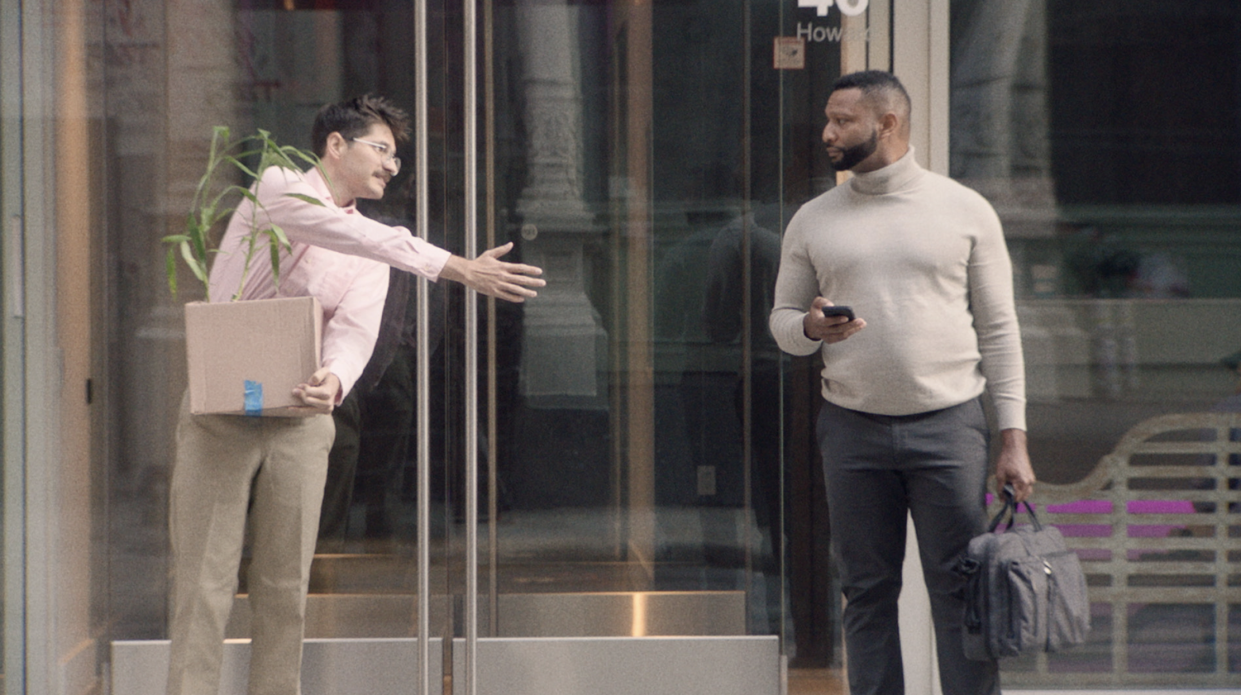‘Free Time’ Review: A New Yorker Chases the Ever-So-Elusive Work-Life Balance in Dry Comedy

One of the great dilemmas facing American society in the 2020s is the question of how much time we actually need to spend working. For many, the COVID-19 pandemic and the flexible work-from-home accommodations it ushered in were evidence that they could get their jobs done without 40 hours of synchronized work each week. Others had bigger epiphanies and decided to prioritize free time over corporate glory by “quiet quitting” or abandoning their careers altogether. It feels like the country has reached a paradoxical crossroads in which many white-collar workers are deriving a higher percentage of their identity from their jobs while simultaneously looking to spend less time doing them.
But while the vague concept of “more free time” has become the MacGuffin motivating countless workaholics to make big life changes, the problem of what to actually do with it can be harder to solve. That’s a lesson that Drew (Colin Burgess) learns 48 hours too late in “Free Time,” Ryan Martin Brown’s lo-fi directorial debut that explores how our modern neuroses are often a poor match for endless amounts of unstructured time.
More from IndieWire
Luca Guadagnino to Reunite with Josh O'Connor for Queer Romance 'Separate Rooms'
Cate Blanchett Says Her Diversity Grant Program Is Different Because It's 'Intensely Practical'
Like many of his co-workers at the nameless corporation he calls an employer, Drew constantly dreams of life beyond the cubicle. He confesses to his boss that he wishes his data analysis job involved more analysis and less data, and surprises even himself when he spontaneously quits midway through the conversation. He finds himself without any source of income, but his days suddenly feel ripe for the seizing. Without his corporate responsibilities and the exhaustion that inevitably follows, the newly unemployed 20-something is ready to focus on late nights getting hammered at Brooklyn bars and laid-back afternoons riding bikes through the city.
It’s a great plan until he actually tries it. Drew quickly realizes that he’s forgotten how to live a life that doesn’t revolve around work — either that, or he never knew how to in the first place. He finds that outdoor leisure activities work better as distracting daydreams than actual pastimes, hangovers don’t stop just because you don’t have work in the morning, and the vibrant social life he dreamed of isn’t possible when everyone else is still busy with their own jobs. It isn’t long before he’s looking for a way back into the workforce — but he soon realizes that his own misguided decisions have turned him into a hero in the eyes of his former co-workers who want their own free time back.
Burgess embodies Drew with the prerequisite amount of neuroticism for the lead in such a stereotypically New York movie, conjuring what a ’70s Woody Allen protagonist might have looked like had he grown up surrounded by the anxiety-inducing omnipresence of social media. The film meanders as Drew floats from half-ass creative endeavors to lame parties where he spends most of his time on his phone. But Brown crafts a fitting portrayal of a certain subculture of NPR tote bag-carrying intellectuals who spend their days producing podcasts and daydreaming about their next green smoothie. It’s a world that Drew can never quite fit into once he has the free time to explore it, but that’s exactly to the point: When we define ourselves by how overworked we are and how much we need a break, anyone who actually gives themselves one turns into an outcast.
“Free Time” feels like the kind of movie you’d get if everyone in “Office Space” drank a CBD latte and calmed down a little before making any rash decisions. Rather than a spirited diatribe about the need to step away from our desks and live life, it’s a thoughtful little comedy about how those soul-crushing hours in the office have the unintended benefit of giving us a personal life that’s worth missing. Some movies track their success in box office dollars or Oscar wins, but the true measure of this film’s influence might end up being the number of Brooklynites it convinces not to quit their jobs to start shitty indie bands.
Grade: B-
A Cartilage Films release, “Free Time” is now playing at Quad Cinema in New York City. It expands to Los Angeles on Friday, March 29.
Best of IndieWire
Sign up for Indiewire's Newsletter. For the latest news, follow us on Facebook, Twitter, and Instagram.

 Yahoo News
Yahoo News 
